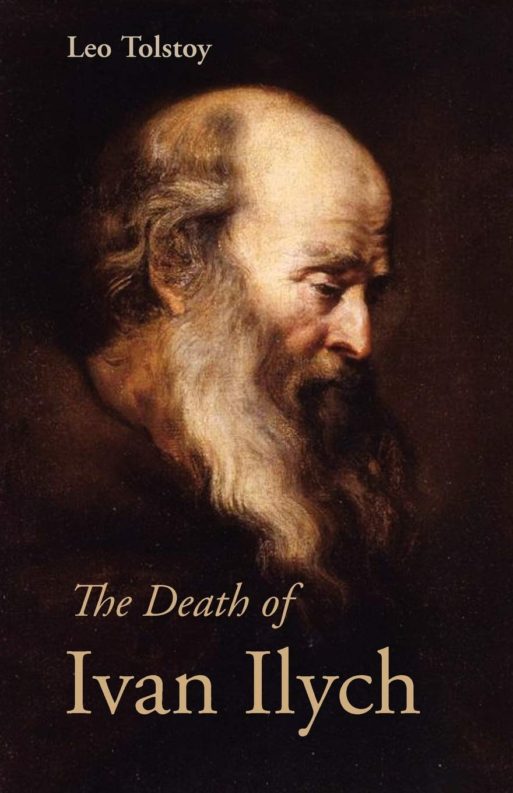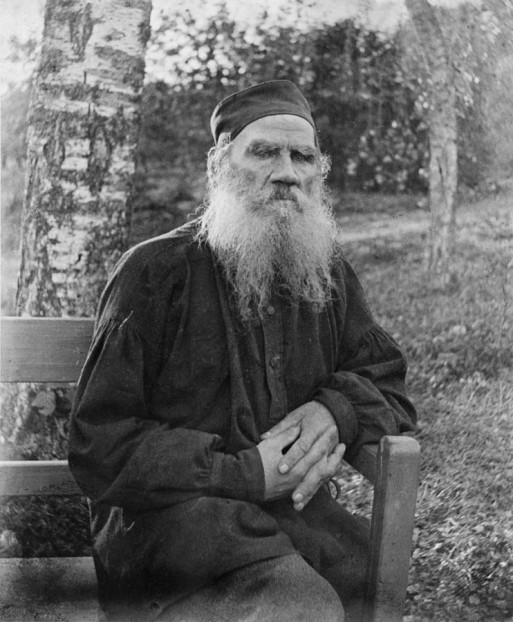 Arguably one of the greatest writers of all time, Count Lev (Leo) Nikolayevich Tolstoy was born to a wealthy Russian family in 1828. His entire body of work, from the highly regarded novels “War and Peace” and “Anna Karenina” to his novella “Hadji Murad,” displays a degree of artistry and insight into the human condition that earned him enormous praise throughout his four-decade career.
Arguably one of the greatest writers of all time, Count Lev (Leo) Nikolayevich Tolstoy was born to a wealthy Russian family in 1828. His entire body of work, from the highly regarded novels “War and Peace” and “Anna Karenina” to his novella “Hadji Murad,” displays a degree of artistry and insight into the human condition that earned him enormous praise throughout his four-decade career.
Yet, despite his literary success, Tolstoy was a troubled and unhappy man. While still in his 20s, he rejected the aristocratic lifestyle of his youth to join the Russian army, but soon returned to his family’s estate, where he led a privileged and admittedly dissolute life. He eventually married and fathered 13 children, but soon began to despair at what he saw as the meaninglessness of life. This despair and his eventual adoption of a non-violent, Christian-anarchist value system are reflected in his brilliant book, “The Death of Ivan Ilyich.”
“The Death of Ivan Ilyich” is a short novel that describes the life and death of a man who unquestioningly accepts the dictates of a society in which conformity, material wealth and social status are cherished above all else. The story begins with the reactions of Ivan’s family and contemporaries to his death, then takes the reader on a journey from Ivan’s boyhood to the spiritual awakening he experiences at the end of his life. Beautifully written and intensely real, the novel follows Ivan’s thoughts as he struggles to come to grips with his terrible suffering and the reality of his impending death. “It cannot be that I ought to die,” Ivan says to himself as he begins to realize that he is dying and not merely ill. “That would be too terrible.”

Tolstoy in 1897
(Credit: wikipedia.org)
As Ivan’s illness progresses, he slowly begins to accept the inevitability of his death, but becomes increasingly angry at the dishonesty of those around him, who persist in denying the horrible reality that is going on in front of their eyes. “This deception tortured him,” Tolstoy writes. “Their not wishing to admit what they all knew and what he knew, but wanting to lie to him….and wanting him to participate in that lie” infuriated him. Ivan describes his growing hatred of his wife, who cannot offer him the compassion and comfort he craves because she refuses to acknowledge what is happening. Instead, she urges him to “take his medicine” and pretends that all is well. Ivan’s only solace comes from the servant Gerasim, whose calm acceptance of the inevitable stands in sharp contrast to the denial displayed by Ivan’s family and friends. “It’s God’s will,” he says at Ivan’s funeral. “We shall all come to it some day.”
Although written nearly 150 years ago, “The Death of Ivan Ilyich” is still extraordinarily relevant today. Here in the West, we live in a privileged society preoccupied with status and material wealth, a value system that robs us of our ability to truly experience life. Like Ivan, we unquestioningly participate in an inauthentic existence, denying both life and death. And like Ivan’s family and friends, we keep our compassion and empathy locked away behind a stoic facade.
As I read “The Death of Ivan Ilyich,” this pervasive lack of authenticity in our lives and the need to challenge it on a daily basis came home to me with stunning clarity. If for no other reason than the insight it offers into our contemporary values, I highly recommend that you read this beautifully written and powerful story more than once.

 “The Death of Ivan Ilyich” by Leo Tolstoy
“The Death of Ivan Ilyich” by Leo Tolstoy


 Recovering Cremation Remains After the Los Angeles Fires
Recovering Cremation Remains After the Los Angeles Fires
 “As Tears Go By” by Marianne Faithfull
“As Tears Go By” by Marianne Faithfull















